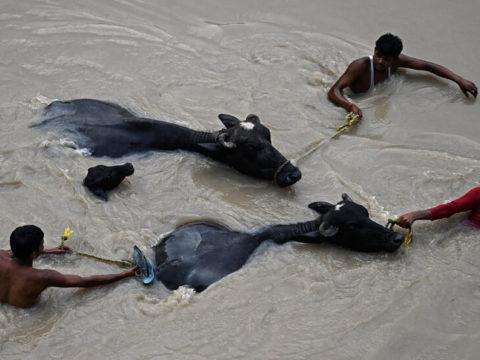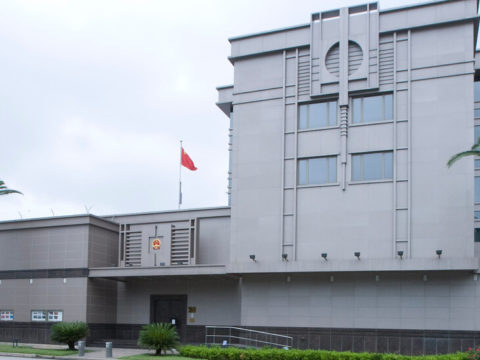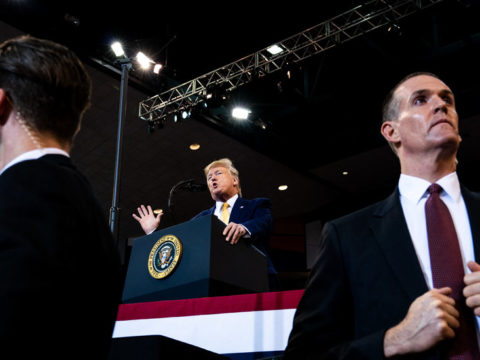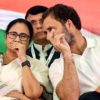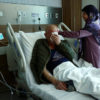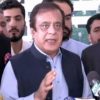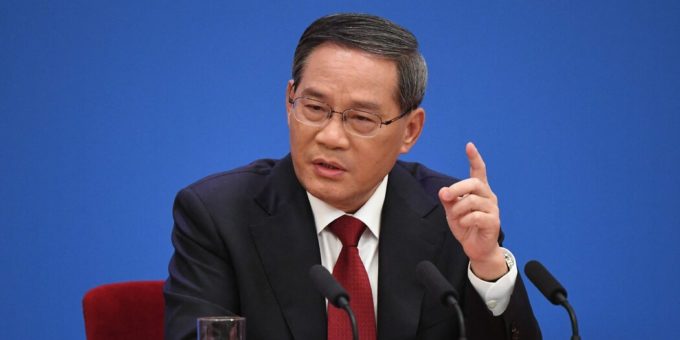
BEIJING — China’s new premier, the country’s No. 2 leader after Xi Jinping, sought on Monday to reinvigorate confidence in the faltering economy, promising that private-sector companies would be treated equally with state-owned ones and that the property rights and other interests of entrepreneurs would be strictly respected.
Premier Li Qiang, who took office on Saturday, strongly endorsed the role of entrepreneurs after a decade in which the state and the ruling Communist Party have played a steadily growing role in China’s economy, with some pro-party commentators castigating big businesses. Weak confidence, spending and investment by consumers and private businesses have hurt the economy, which has slowed sharply over the past few years.
The Communist Party is under immense pressure to revive growth, which was battered by nearly three years of “zero Covid” restrictions, including mass testing and quarantines. Lengthy city lockdowns that confined hundreds of millions of people to their homes disrupted factory production and left consumers and businesses alike with little confidence to spend.
Even after the government lifted those pandemic rules in December, many entrepreneurs have been wary of making new investments. Some have even left the country as the climate for private businesses has deteriorated.
The state-led banking system has been steering more loans in recent years to state-owned enterprises. Government-controlled construction companies have squeezed out many private real estate developers. The Communist Party has insisted on a larger role in the decision-making of private companies. And many local governments have forced private companies to make large “donations” or pay arbitrarily imposed fines to help cover the costs of social programs.
Speaking on Monday at his first news conference as premier, Mr. Li delivered the most forceful statement by a Chinese leader in years of the need to preserve the vitality of the private sector. He promised a commercial environment “in which businesses of all forms of ownership will be treated equally, protecting the property rights and interests of entrepreneurs according to the law, encouraging fair competition between business entities of all types.”
He offered no specifics about reviving the economy. He cautioned that even China’s goal of 5 percent growth this year, the lowest target in decades, would not be easy to achieve, particularly at a time when many other countries also face significant economic challenges.
More on China
- Xi’s Third Third: Xi Jinping solidified his status as China’s most powerful leader in decades by sweeping into a new term as president on March 10, after claiming a term as party leader in October.
- Diplomacy: At many gatherings of global leaders and diplomats, Beijing’s growing willingness to play a spoiler role and side with Russia is causing tension and anxiety.
- A Surge in Activity: After being battered by the pandemic in 2022, Chinese factories bounced back with vigor in February: Manufacturing activity rose to its highest level in more than a decade.
- Erasing Vestiges of ‘Zero Covid’: The ruling Communist Party is waging a propaganda campaign to rewrite the public’s memory of its handling of the pandemic, which included some of the harshest restrictions in the world.
But he offset short-term concerns about growth by making a case for China’s continued economic strengths. “There is the massive scale of its market, its comprehensive array of industries, abundant human resources, and a robust base for development — even more important, there are our clear institutional advantages,” he said, apparently referring to Communist Party rule.
Mr. Li’s remarks triggered a sharp jump on Monday morning in share prices in Hong Kong and a smaller but notable increase in mainland China, even as markets elsewhere in Asia fell on worries about government takeovers of two troubled banks in the United States.
Mr. Li’s comments were particularly noteworthy because he, unlike his predecessor, is seen as a close ally of Mr. Xi, who has overseen the ever-expanding role of the Communist Party in daily life and who has tended to emphasize security over economic growth.
Mr. Xi delivered brief remarks before Mr. Li at the close of the nine-day annual session of China’s largely ceremonial, Communist Party-controlled legislature, the National People’s Congress. Mr. Xi did not mention the country’s economic challenges, focusing to a considerable extent on the need for security and stability.
The difference in tone and substance between the two men’s comments suggested that Mr. Xi would leave the details of economic policy to the premier, while Mr. Xi would play the role of the paternalistic Communist Party leader who provides security for the people but is not directly responsible for the month-to-month vicissitudes of the economy.
Many business leaders in China have been worried as Mr. Xi’s emphasis on national security has been used to justify greater party involvement in private companies’ affairs, as well as strong pressure on businesses to cooperate with the military under a so-called “civil-military fusion” policy. But Mr. Xi repeated his case that emphasizing national security was fully consistent with economic progress.
“Security is the foundation of development, and stability is the precondition for strength and prosperity,” Mr. Xi said.
Mr. Xi and Foreign Minister Qin Gang both delivered strong criticisms of the United States early last week, accusing it of seeking to contain China. But when asked on Monday about Sino-American relations, Mr. Li steered clear of geopolitical issues and of any direct criticism of the United States government, choosing instead to endorse free trade and commercial cooperation.
“Opening up to the outside is our fundamental national policy, and no matter how the international situation changes, we will be unwavering in advancing it,” he said.
Mr. Li even suggested that Mr. Xi and President Biden follow up on various understandings they reached during a November meeting in Bali, Indonesia, before the flight of a Chinese spy balloon across the United States led once more to a souring of bilateral relations.
The premier’s news conference with foreign and local journalists at the end of the annual legislative session is presented as a demonstration of political accountability. But the leadership screens questions beforehand, to ensure that no topics that China’s leaders do not want to address publicly are raised.
China’s leaders have taken several steps during the nine-day session to reassure businesses and investors. Mr. Xi, who has sought to tighten the party’s grip over the economy and private businesses, told business leaders that the party embraced private companies as “one of us.”
In a move seen as signaling continuity, the party retained the leaders of the central bank, the Ministry of Commerce and the Ministry of Finance, ending weeks of speculation that Mr. Xi would replace them with a new and possibly less experienced generation of economic policy managers.
“This raft of appointments seems to at least partially buck the narrative that demonstrated fealty to Xi Jinping will trump technocratic competence in assigning top-level government positions,” said Eswar Prasad, a Cornell University economist.
Some signs of economic recovery have emerged. Surveys of purchasing managers suggest that factory activity accelerated strongly in February. In many Chinese cities, the subways, airports and hotels are busy once more.
But youth unemployment remains high, and the housing market is in a slump. China’s factories, the engine of its trade with the world, are facing weakening demand from the United States and Europe.
Construction, another mainstay of the Chinese economy, has slackened because of a slow-motion housing market crash, and this in turn has hurt demand for steel, cement and other materials. China plans to release on Wednesday a wide range of data on industrial production, real estate development, retail sales and other economic activity during January and February.
Amy Chang Chien contributed research from Taipei and John Liu and Chang Che from Seoul.

